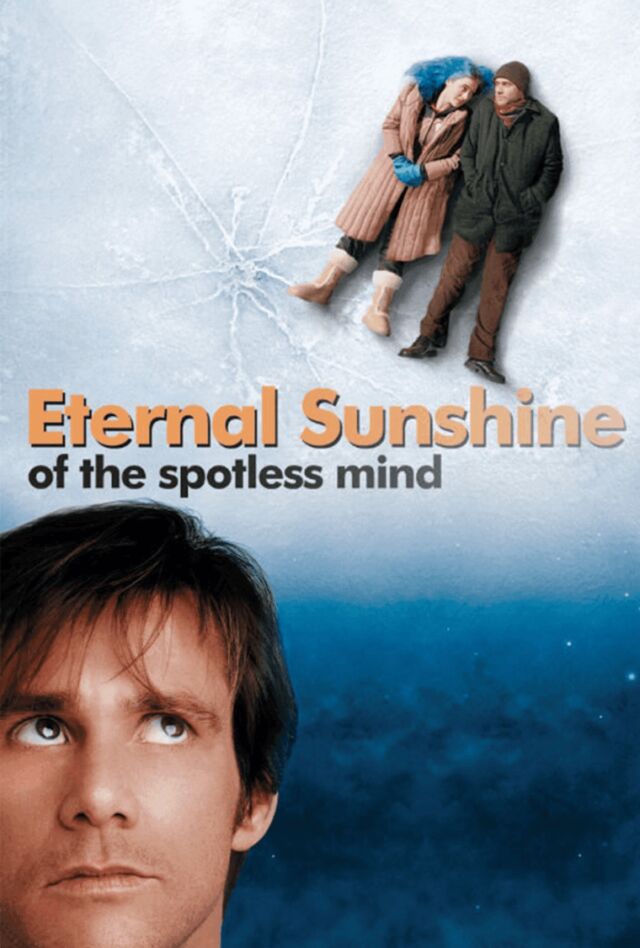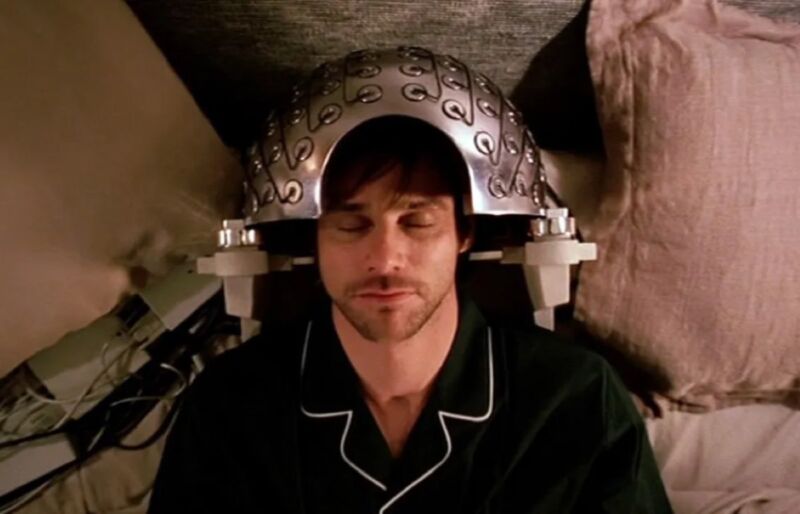
Last week, the 2004 cult classic Eternal Sunshine of the Spotless Mind marked its 20th anniversary, prompting many people to revisit the surreal sci-fi psychological drama about two ex-lovers who erase their memories of each other—only to find themselves falling in love all over again. Eternal Sunshine was a box office success and earned almost universal praise upon its release. It's still a critical favorite today and remains one of star Jim Carrey's most powerful and emotionally resonant dramatic roles. What better time for a rewatch and in-depth discussion of the film's themes of memory, personal identity, love, and loss?
(Spoilers for the 2004 film below.)
Director Michel Gondry and co-writer Pierre Bismuth first came up with the concept for the film in 1998, based on a conversation Bismuth had with a female friend who, when he asked, said she would absolutely erase her boyfriend from her memory if she could. They brought on Charlie Kaufman to write the script, and the three men went on to win an Oscar for Best Original Screenplay for their efforts. The title alludes to a 1717 poem by Alexander Pope, "Eloisa to Abelard," based on the tragic love between medieval philosopher Peter Abelard and Héloïse d'Argenteuil and their differing perspectives on what happened between them when they exchanged letters later in life. These are the most relevant lines:
Of all affliction taught a lover yet,
'Tis sure the hardest science to forget!
...
How happy is the blameless vestal's lot!
The world forgetting, by the world forgot.
Eternal sunshine of the spotless mind!
Carrey plays Joel, a shy introvert who falls in love with the extroverted free spirit Clementine (Kate Winslet). The film opens with the couple estranged and Joel discovering that Clementine has erased all her memories of him, thanks to the proprietary technology of a company called Lacuna. Joel decides to do the same, and much of the film unfolds backward in time in a nonlinear narrative as Joel (while dreaming) relives his memories of their relationship in reverse. Those memories dissolve as he recalls each one, even though at one point, he changes his mind and tries unsuccessfully to stop the process.
AdvertisementThe twist: Joel ends up meeting Clementine all over again on that beach in Montauk, and they are just as drawn to each other as before. When they learn—thanks to the machinations of a vengeful Lacuna employee—what happened between them the first time around, they almost separate again. But Joel convinces Clementine to take another chance, believing their relationship to be worth any future pain.
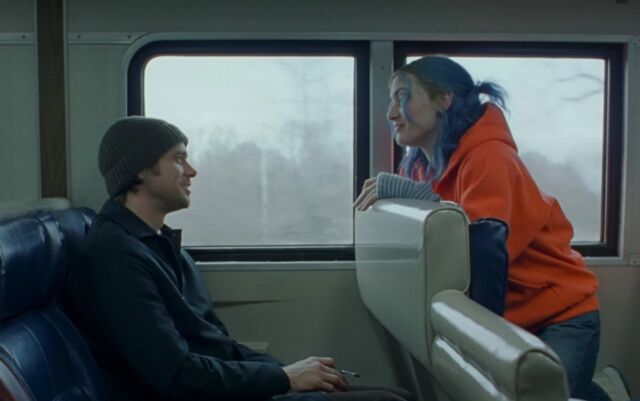
Much has been written over the last two decades about the scientific basis for the film, particularly the technology used to erase Joel's and Clementine's respective memories. The underlying neuroscience involves what's known as memory reconsolidation. The brain is constantly processing memories, including associated emotions, both within the hippocampus and across the rest of the brain (system consolidation). Research into reconsolidation of memories emerged in the 2000s, in which past memories (usually traumatic ones) are recalled with the intent of altering them, since memories are unstable during the recall process. For example, in the case of severe PTSD, administering Beta blockers can decouple intense feelings of fear from traumatic memories while leaving those memories intact.
Like all good science fiction, Eternal Sunshine takes that grain of actual science and extends it in thought-provoking ways. In the film, so-called "problem memories" can be recalled individually while the patient is in a dream state and erased completely—uncomfortable feelings and all—as if they were computer files. Any neuroscientist will tell you this is not how memory works. What remains most interesting about Eternal Sunshine's premise is its thematic exploration of the persistence and vital importance of human memory.
So we thought it would be intriguing to mark the film's 20th anniversary by exploring those ideas through the lens of philosophy with the guidance of Johns Hopkins University philosopher Jenann Ismael. Ismael specializes in probing questions of physics, metaphysics, cognition, and theory of mind. Her many publications include The Situated Self (2009), How Physics Makes Us Free (2016), and, most recently, Time: A Very Short Introduction (2021).
Ars Technica: Let's start with your general take on the nature of memory and what it means to our sense of self.
Jenann Ismael: A lot of people who've written about personal identity treat memory as one of the central threads that connects you to your past and future selves. My own thinking about this is very much tied to what it means to be a person. This is one of these perennial questions: What distinguishes human beings from other animals? And one of the things that I keep coming back to is that people have autobiographical memory. As far as we know, we're the only creatures that have it. By autobiographical memory, we don't just mean that we register and record and have ways of storing information about the past, but we have very specifically a conception of ourselves and a conception of our own lives. When I think about myself, I think about my past and I think about my future, and I experience my life as kind of an unfolding story.
The notion of a story plays a central role there, but it means essentially something that has a narrative form, a sequence of events that have a cumulative and developmental character. My life has a plot in the sense that past events occur in a way that's anticipating the future. Future events occur in the context created by past events. At every moment in our lives, we have both a sense of our past and a sense of our future. How we experience the present moment, the significance of the present moment, is all understood within that context in which it plays a role in a developing story. So in that sense, it's central to the idea of the self.
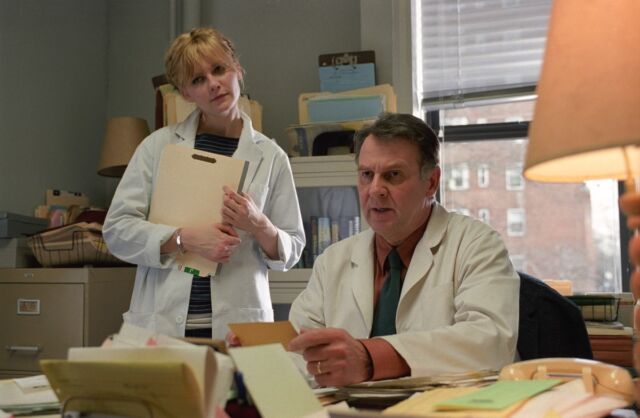
Ars Technica: Perhaps memory is like the raw material, the threads that we use to construct a tapestry of our narrative.
Jenann Ismael: I'm not even sure that it's the raw materials. I think it is the story. Things happen to us, but by the time they're stored in semantic memory, they've already been processed through our attempt to give them significance. Michael Gazzaniga did a lot of research on the extent to which memory is not even reconstituted. It's just constitutive. The role of memory is not to register our spatial temporal location to add different moments in our lives, it's to figure out who we are, who we want to be, the words that we use to describe our past and our futures, the events of our lives.
AdvertisementThey're not merely registering descriptive facts. They're rich with implications, and the implications carry information about the past and the future. If you say, "I went to a wedding yesterday," the notion of a wedding only makes sense as part of a larger narrative. It has commitments to the future and connections to the past. So I think every aspect of our memory, in a sense, is something more than merely descriptive in the flat sense.
Ars Technica: One of the film's central themes is that you lose something vital when you erase your memories of a particular person. In essence, you lose a part of yourself.
Jenann Ismael: Absolutely. It is a kind of surgery. It's removing something that's an integral part of your conception of who you are. One thing the movie didn't quite get right is that you can't do that sort of surgery because your memories of other people are tied into other parts of your lives. You wouldn't leave stuff intact. The way that they created that particular story, it was relatively isolated from other things, but most of the central relationships in our lives, we couldn't take them out and be left with much of anything that made sense.
I do think it is a sense of loss of self. One thing that struck me this time watching the film is the degree to which relationships have a narrative form of their own. In a sense, the narrative of a relationship isn't one person's property. It gets constituted by the two of them together. So her losing her memory was a loss to him. But also, it wasn't so much foregrounded in the film, but I think it is true that when you're telling your own story, you do get ownership of the story. You get to decide its significance. But when you're in a relationship, and particularly a relationship with real emotional involvement, you don't get to decide the significance of events.
They're continuously negotiated and renegotiated, and the relationship only survives if you have a common understanding, to some extent. Say you have a fight with your partner and you part ways with different stories about what happened. It's not that you disagree on the facts, it’s that the story of what happened is something that you're at odds about. Part of a relationship is having a common understanding of what's happening between you, and the story of the relationship is something that neither of you gets to decide alone, it's something that develops together. It was so shattering hearing the taped voiceovers of Joel and Clementine telling their stories to the therapist. That was an intersection of them trying to play out one story and narrating that story in the most negative way.
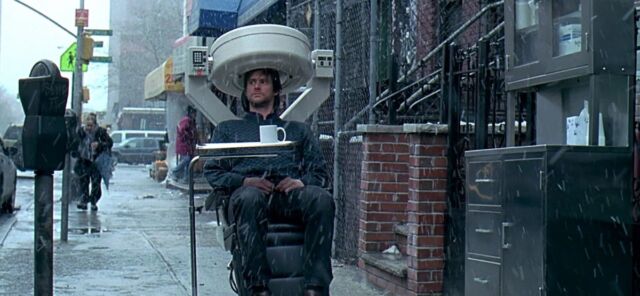
Ars Technica: The film has this wonderfully non-linear narrative structure, very dreamlike. In that sense, it rather reflects the nature of memory itself because it’s not like every memory is an individual file that gets stored in a specific part of the brain. It’s not like a computer file.
Jenann Ismael: That aspect also captures the way in which memories lend one another significance—the things that you experience with someone that you know well, for a long time. In some cases, they're more meaningful; in some cases, they're more painful. But that sense of layering of experiences over previous experiences, I think that's exactly right about how memory works.
Ars Technica: We have this notion that we have to be happy all the time, and if something bad happens to us, like a breakup, we mostly want to stop hurting. But aren't those negative emotions also part of shaping who we are?
Jenann Ismael: I wonder how much it depends on the particular experiences. I know people who have had bad experiences—really painful experiences—who say, "But I wouldn't give it up because it's such a part of who I am." But I can also imagine people who have had bad experiences where they don't identify with it. They don't want to tell people about it, they want to disown that experience. In my own case, there are painful experiences that I wouldn't give up for the world, but I can easily imagine things that I wouldn't want to count as part of my biography, things that I don't feel are part of me in a sense that I embrace.
Ars Technica: Part of developing our identity also involves weighing how people see us versus how we see ourselves. There are people in the film who look at Joel as this loser who can't deal with losing his girlfriend, but what's going on in his head is very, very different—richer and more meaningful.
Jenann Ismael: There’s a very deep point there. It's not specifically about the movie, but it's about the way that other people see us, the way we see other people, and the way that we see how other people see us.
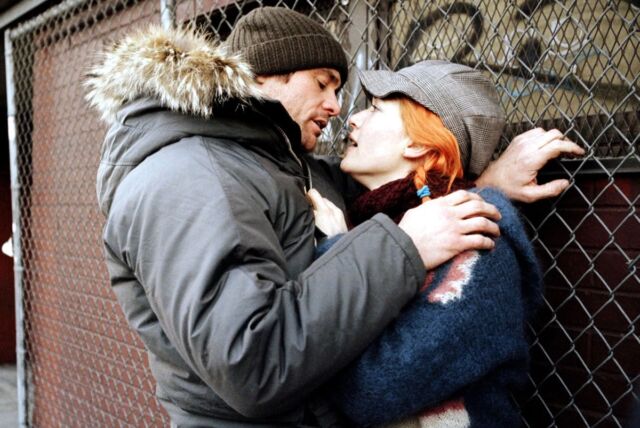
Ars Technica: We are characters in their story, and they're characters in ours.
Jenann Ismael: Exactly. Nobody lives in a vacuum. We walk around and see reflections of ourselves in others, particularly when we're young. We need affirmation to try to understand how to piece together a conception of self. There's always a sense of who am I? What am I good at? Who am I going to be? Partly we're doing that by discovering what we can do in the world. But a part of it is, how do people identify me? What's the kind of social role that I can play? Professionally, it's the same thing. You're always aware of what roles you're allowed to play, the ways in which other people will accept you, negotiating between that and the question of "who am I really?"
Ars Technica: What struck you most as you rewatched the film after all these years?
Jenann Ismael: Here's why I think memory is so important. Questions about why it's bad to die have run through philosophy forever. There's this old argument from a Greek philosopher who basically said, "We're mixed up to be scared of death. Because if you think about it, when you're dead, you're not there to mind being dead. And before you're dead, you're not dead. So what's wrong with death? Are we just confused to fear death?"
And I think the answer to that is no. No, we're not. But it takes some work to excavate why, in particular when you ask what's going to be lost when I die? The matter of which our body is made and the energy, none of that is lost. What we do over the course of our lives is build up a stock of memory in the rich sense. I don't mean in the sense that this happened and that happened and I learned this and I learned that—all of that stuff is reproducible—but what I think of as genuine self constitution. You go through your life, things happen to you, and at first they happen in a passive way. But over the course of your life, more and more, you're making choices.
AdvertisementYou're choosing experiences. You're choosing friends. You're choosing what to read. You're choosing what bits of the world to collect. It's like you're building a nest and you're foraging, and more and more you're directing your foraging. Some of it you're keeping. That's the process of memory. You're filtering out what not to keep, and you're keeping the treasures. This happens over the whole course of your life. By the time that we're middle-aged, we've extracted from the noisy accidents of our lives, a fund of—you can call it memory, but it's more like all of the things that I've taken from the world. And that stuff is me. It's a point of view on the world. It's a set of values and priorities. It's preferences. It's things I love. It's things I find beautiful. It's memories of sunsets.
Memory is at the heart of who and what we are, and the fact that it's something we make means it's really precious.
It's an information structure in the same way that evolution takes years of cherry-picking from the accidents that the material world throws up. You create structures that survive over the course of your life. You've created an information structure by assembling little bits from the things that you've learned, the things that you've observed, the things that have happened to you.
That's the kind of creatures we are. Our minds are hungry for information, for building meaning. When you die or when someone that you love dies, that's what's lost. The reason I think of that as self constitution is that each of us is completely unique. We share a whole bunch of material. But we've earned what's in our minds. That's what I mean by memory.
And that goes back to the sense in which you can't just surgically extract a part of it. Each part of it is woven into this tight configuration, one thing layered on another. If I ask you what courage means to you or what beauty means to you, it means something that's inextricable from lots of individual things, and it's very uniquely you. It's not exchangeable, not fungible. I think memory is at the heart of who and what we are, and the fact that it's something we make means it's really precious. It's what we find precious in other people. It's what makes us who we are.
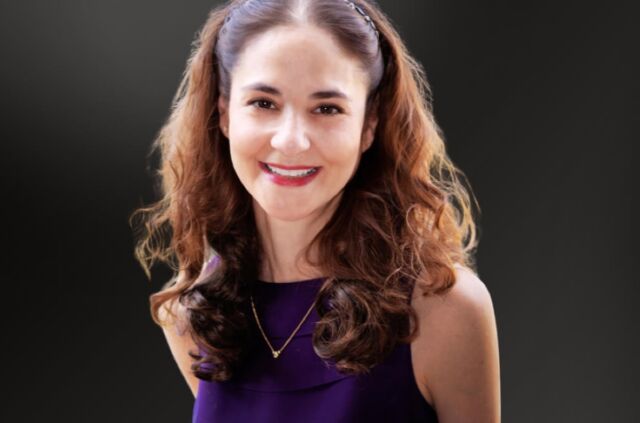
Ars Technica: Even when we die, the people in our lives still tell stories about us after we’re gone—the oral tradition. It's kind of a collective narrative memory. When you're talking about what we lose in death, we lose our memories and our intrinsic sense of self. That is lost forever; you cannot replicate that. Perhaps what lives on is who you were to the people who loved you.
Jenann Ismael: Exactly. Your story is woven into other stories. There's this argument that people make sometimes: "Death, where a hundred years from now, nobody's going to remember my name." I love Thomas Nagel's response to this: "If nobody a hundred years from now is going to care about me, why should I care whether they remember me? They're a hundred years away." What really matters to me—I feel this especially at this stage in my life—is that the people I care about remember me.
So when you're making choices between "do I want to say no to personal things and shortchange my relationships because I'm going to be focusing on work?" the answer is "obviously not." The professional realm is super fickle. They're not going to remember me tomorrow. But this person I make a deep impact on and I'm woven into their life—that's different. It's about refocusing your sense of where you want the memory of you to be deposited in the world. For me, it lies with the people who really know you, the people who love you and who you love. Ultimately, we are all dust and ashes, and so are they. What really matters is the tight circle.
Ars Technica: That brings us full circle back to the film. Joel ultimately decides that having known Clementine and having loved her, even if it ended badly, it was—and still is, because at this point they've found each other again—worth it to be part of her life and have her be part of his.
Jenann Ismael: I loved the acceptance when she said, "It's going to end; I'm going to get bored of you." And he was like, "OK." That's the irony of the title, Eternal Sunshine of the Spotless Mind. It's not about eternal sunshine, which is featureless. It's about light and shadow and all of it.


